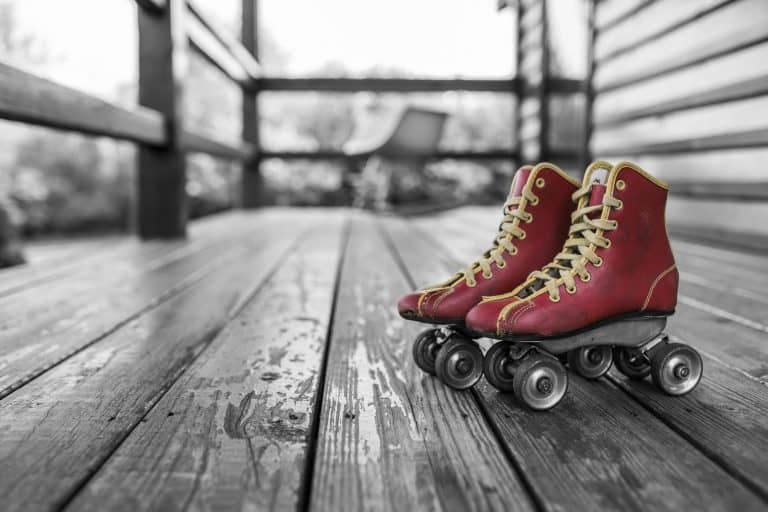You’re busy and overwhelmed. I get it. I am too! How many times have you set a goal and didn’t achieve it? It happens all of the time! You want to lose weight, declutter, be more productive, get up earlier, make your bed every-day, start a business, or finish reading a book. Goals whether big or small can be difficult to achieve.
The year I started dating my husband, I signed up to do a bike race called the MS 150. It was a two-day bicycle ride from Houston, Texas to Austin, Texas (approximately 150 miles.) Thousands of riders sign up…both experienced and amateur riders. I was in the amateur group. In fact, when I signed up, I didn’t even own a bike.
In order to accomplish this goal, I knew I would have to train and condition my body so that I could successfully finish the race. Well, about a month into my training, I started this long-distance relationship. He lived in Canada and I lived in Texas. We saw each other every two weeks, which meant that my training time was severely impacted
After trying to juggle everything, I finally made a decision to bow out of the race. Clearly, I didn’t meet my goal.
![]()
Life Happens
That wasn’t the first or the last time for me to not reach a goal. It happens on the regular now with a young family. The reality is, life gets in the way, other priorities come up, or you get distracted when trying to achieve a goal. For right or wrong, there is a mismatch between your desire and your discipline. Sure, you can rationalize and try to justify your decisions, but the reason you don’t meet your goals is because there is a breakdown in the small daily steps.
What Are Habits
At some point, you make a choice and stop taking the required action necessary for achieving the bigger goal. That’s where habits come in. Habits are small things you do on a regular basis, often without thinking. It’s this very thing that helps you to be successful in achieving a goal or becoming the person you want to be.
The Importance of Habits
More than 40% of what we do each day are habits…habitual activities that we don’t give much thought to. If you want to achieve something new or stop a behavior, you’ll need to be more intentional about your habits.
Hal Elrod, in The Miracle Morning: The Not-So-Obvious Secret Guaranteed to Transform Your Life: Before 8AM shares,
“Considering that our habits create our life, there is arguably no single skill that is more important for you to learn and master than controlling your habits. You must identify, implement, and maintain the habits necessary for creating the results you want in your life”
Creating New Habits
It’s a common myth that habits only take 21 days to create. Recent research shows that on average it takes 66 days to form a new habit. Some people can create a new habit in as little as 21 days, but others may take up to 8 months.
The good news is, you don’t have to be perfect as you work on your new habits. Your goal can be progress and not perfection. The main thing is to stick with it!
Identifying New Habits
New habits can be simple like:
- Make your bed every morning
- Drink 8 glasses of water
- Read 30 minutes a day
Or New habits can be smaller steps to reach a larger goal e.g. loose 20 lbs
- Exercise 30 minutes daily
- Drink 8 glasses of water
- Write down what you eat
- Eat less than 1,700 calories
“Be the designer of your world and not merely the consumer of it.”
― James Clear, Atomic Habits: An Easy & Proven Way to Build Good Habits & Break Bad Ones
What is a Habit Tracker
A habit tracker is an at-a-glance way that you can track the new habit you’re developing. Most habit trackers can show you multiple habits over a week, a month, or several months.
Example Habit Trackers
View this post on Instagram
On one side list the new habits and across the top, list the days of the week or month. You’ll only need space to put a check or an x-mark for each habit each day.
View this post on Instagram
20 Habit Tracker Ideas
The options of things that can be tracked in a Habit Tracker are limitless. A few examples include:
- Get to bed by 10 p.m.
- Wake up at 6 a.m.
- Floss
- Hydrate
- Exercise
- Read
- Journal
- Practice piano
- Pray
- Study
- No spending
- Vitamins
- Stretch
- Say I Love You
- Time worked
- Time with Kids
- Laundry
- Dishes
- Decluttering
- Home Organization
How to Start Tracking Habits
If you’re new to tracking habits, start small. Identify 3-5 habits you want to track. Give it a month and see how you’re doing. As you get the hang of tracking your progress, you can add more habits to track. I recommend tracking no more than 15.
If you have high resistance to your desired habit, then only try to do a few habits. What I mean by high resistance, let’s say you want to drink more water, but you hate water. It won’t’ be helpful to have 10 habits and struggle with all of them. Just start with a few until you master them.
Reminder- you’re looking for progress and not perfection. You’ll be able to see trends in your habit tracker. And over time, if you stick with it, you should see an increase in compliance.
“Every action you take is a vote for the type of person you wish to become. No single instance will transform your beliefs, but as the votes build up, so does the evidence of your new identity.”
― James Clear, Atomic Habits: An Easy & Proven Way to Build Good Habits & Break Bad Ones
View this post on Instagram
Habit Trackers Help You Focus on What’s Important
Habits are important to consider when you’re trying to change something about yourself or reach a goal. Habits are formed little by little over time and require consistency. Almost half of what you do every day is habitual yet it takes on average over two months to form a new habit. By breaking down goals into smaller activities, and then implementing a simple habit tracker, you are more likely to achieve your goal. A habit tracker helps you focus, reinforces what’s important to you, and increases accountability.
It’s your turn, take a minute to write down 3-5 habits you want to create in the coming months.







